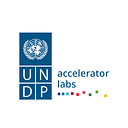“Minds at the margin are not marginal minds”
By Swastik Das, Afreen Siddiqui Sherwani, Dibya Singh
Anil Gupta, founder of the Honey Bee Network and a grassroots innovations devotee, is the inspiration behind these important words. In a recent conversation with him, we learned about the incredible richness of local innovations that are continuously flourishing on the edges. They speak to the great curiosity and adaptability of humans, and how sometimes these spike in the most underserved communities in the planet. Unfortunately, these innovations are often overlooked and flagged as marginal.
This opens the question: what counts as innovation? According to the Global Innovation Index, India ranks 57th globally, 5th among lower-middle-income economies and first in the Central and Southern Asian region. These rankings often use indicators like intellectual property rights, number of established technological companies, mobile-application creation, education spending or scientific and technical publications.
What if we counted on the creativity, curiosity, unmet needs and problem-solving skills of, potentially, millions of people that can’t wait for the market or the public sector to solve their everyday problems?
Lead user innovation, positive deviance or more simply grassroots innovation are still relatively new to global development. The idea is simple and relatable: when public services fail, citizens come up with coping strategies to solve their own problems. These customized solutions are naturally grounded in a specific context and might be more relevant given their proximity to the problem. Innovations become imperative when constraints are overbearing, and frugality remains one of the key drivers of grassroots innovation in the developing world.
At UNDP, we know we have a blind spot. While the organization has started to apply positive deviance to address social and environmental problems, we haven’t yet systematically tapped into the knowledge of grassroots solutions. The Accelerator Labs will try to change this. Moving away from only externally driven off-the-shelf solutions, the Labs will focus on identifying local solutions and changing the way development is done.
Among the 60 Accelerator Labs across the world, the solutions-mapping race is on. Here in India, we have found the perfect partner to teach us about grassroots innovations and gear us to be front runners.
Exploration journeys
UNDP India is part of the Accelerator Lab Network. New capabilities (explorers, mappers and experimenters) will soon join our team. While we look forward to welcoming our new colleagues, we also feel we have a responsibility to set their ground, so they are not starting from a blank slate. When we asked ourselves where to begin, the answer for many of us was clear: grassroots innovation mappers, such as the Honey Bee Network.
Born in India and with more than three decades of work, the Honey Bee Network is a global web of like-minded individuals, innovators, farmers, scholars, academics, policy makers, entrepreneurs and NGOs with an ambitious goal: pursuing the cause of innovation for and from grassroots.
Since 1988, thousands of volunteers have documented more than one million ideas, innovations and traditional knowledge practices. To find them, the volunteers take exploration journeys, or shodh yatras in Hindi, where volunteers visit local communities searching for grassroots innovations. Quoting the Honey Bee Network, shodh yatra aims at unearthing traditional knowledge and grassroots innovations that have not only simplified the lives of men, women and farm labourers but have also significantly contributed towards the conservation of biodiversity. Anil Gupta maintains that inclusive innovations are also empathetic solutions, and the empathy emanated from deep personal immersion.
Our paths are clearly align and we recently signed a partnership between the Accelerator Lab and the Honey Bee Network in India. Under this partnership we will explore:
Solutions mapping: UNDP and partners will get hands-on experience on the Honey Bee Network approaches and methodologies to identify and document local solutions.
Joint experiments to demonstrate the value of scaling existing solutions to promote positive change.
Innovation cells in state governments such as Maharashtra, Uttarakhand, Orissa and Madhya Pradesh.
Expanding the Honey Bee Network database of solutions. This repository stores at the moment more than a million solutions gathered in 75 countries.
Together, we are getting started in the areas of biodiversity, circular economy, waste management, health solutions and women’s entrepreneurship, which reflect some of the key sectors in which UNDP India is currently operational. Among our partners, we are looking for front-line innovators that have come up with solutions, so we can start documenting their practices and assess opportunities to learn and grow these solutions.
Often and unfortunately, the routine of the development ecosystem in India is too focused on piloting solutions, not on scaling them. The Accelerator Labs bring an opportunity to change this reality. Our working hypothesis is that mapping and tapping into hotspots of creativity and grassroots innovations can help make a dent into this challenge. Unless we promote learning from external innovations, we will not value internal innovations either.We think that recognising and rewarding innovations will create a culture of creativity, which in turn will inform our own programmes and projects.
With the Honey Bee Network, we hope to stretch many of those million solutions and find those that haven’t yet been discovered, into opportunities to accelerate development results. We can’t afford not having these innovations influencing the mainstream. Ignoring them is no longer an option.
